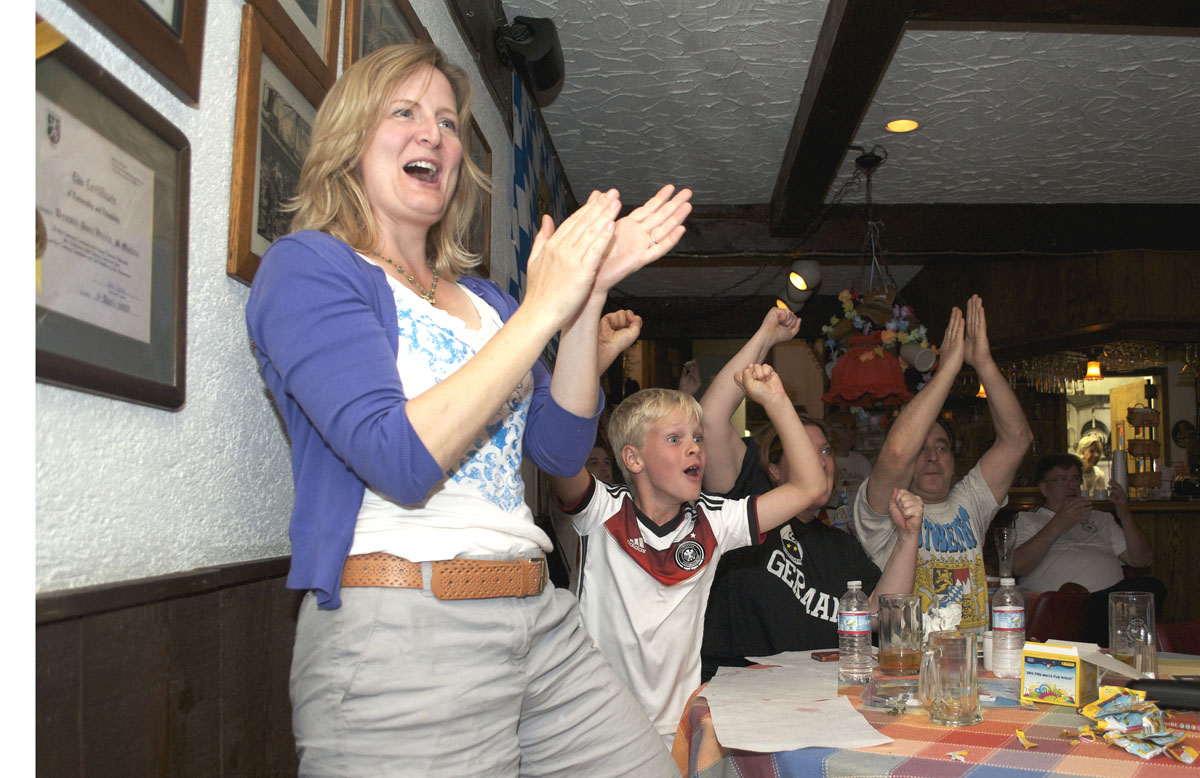
LINCOLN BLVD — It is surprising, and perhaps it shouldn't be, that many of the members of the German American Club maintain their German accents.
One might expect a room full of Americans of German-descent, several generations removed from their homeland. According to the last census, 49.8 million Americans are of German ancestry, the largest ancestry group in the country.
But most of the more than 250 members of the German-American Club on Lincoln Boulevard were born in Deutschland, according to Hans J. Ehringer, the club's historian.
The club was founded in Santa Monica in 1951, just six years after the end of World War II. Many of the club's members relocated to the United States after the war, Ehringer said, and the club's founder organized charter flights back to the homeland. The club started as a byproduct of the charter flights but they saved the money and it grew into a cultural gathering place.
Today the club is capped at 300 members paying $75 for an annual membership.
Members gather for dinner on Thursdays in the clubhouse, which stands out — thanks to the traditional half-timber framed fa√ßade — from the chain stores and strips malls in the area.
Inside, the ceilings are wood-paneled. German flags hang on the wall. Everyone offers up glass steins of beer. Oktoberfest is celebrated in the parking lot every fall. Everyone is a volunteer.
Ehringer, a Hamburger who survived the firestorm bombings of 1943, moved to Canada with his fiancé, now wife, in 1958. They moved down to Santa Monica in 1961.
Though many of the members were children during the war years, Ehringer says they speak very little about it. They talk about German food, he said, or look at pictures whenever one of the members returns from a trip to Germany, or dance to German music.
"We talk about (the war) once in a while," he said. "Sure, we were dodging bombs. The funny thing is what teed me off, every once in a while you see all these movies and when the German bombers fly over London and they drop the bombs you see kids flying all over and limbs flying around. And basically the same thing happened in Germany but they fly with those B-17s over, all you see is ‘poof poof poof.' You don't see the destruction."
When asked if he faced discrimination as a German in North America after the war he responds: "Very little. We have Jewish friends. Of course there's always somebody."
Ehringer wears a T-shirt depicting a bald eagle's head in front of an American flag and a National Rifle Association baseball cap. A toolmaker by trade, in 1983 he forged a belt buckle for then-President Ronald Reagan in honor of the tricentennial of the German immigration to America. Reagan tracked him down and thanked him for the buckle over the phone.
Though his accent remains, Ehringer has "lost" his German. He still understands the language but thinks solely in English.
He watches World Cup matches (The German-American Club is packed when the German team plays) and will be forced to take sides later this month when the United States plays Germany.
When asked which team he'll choose, Ehringer points to his American flag shirt. He'll be happy if the U.S. or Germany wins the World Cup, or even Mexico (his son-in-law is a Mexican-American).
Ehringer, whose business card reads "German born, American by the grace of God," last visited Hamburg in 2010.
"We still like the food over there but it's a different climate, different people," he said. "A lot of foreigners over there. You think there's a lot of foreigners over here, you should go over there."
The club is open to members only. To join, one must find a sponsor and attend a few dinners before submitting an application.
The U.S. team will play the German team on June 26 at 9 a.m.
dave@www.smdp.com









